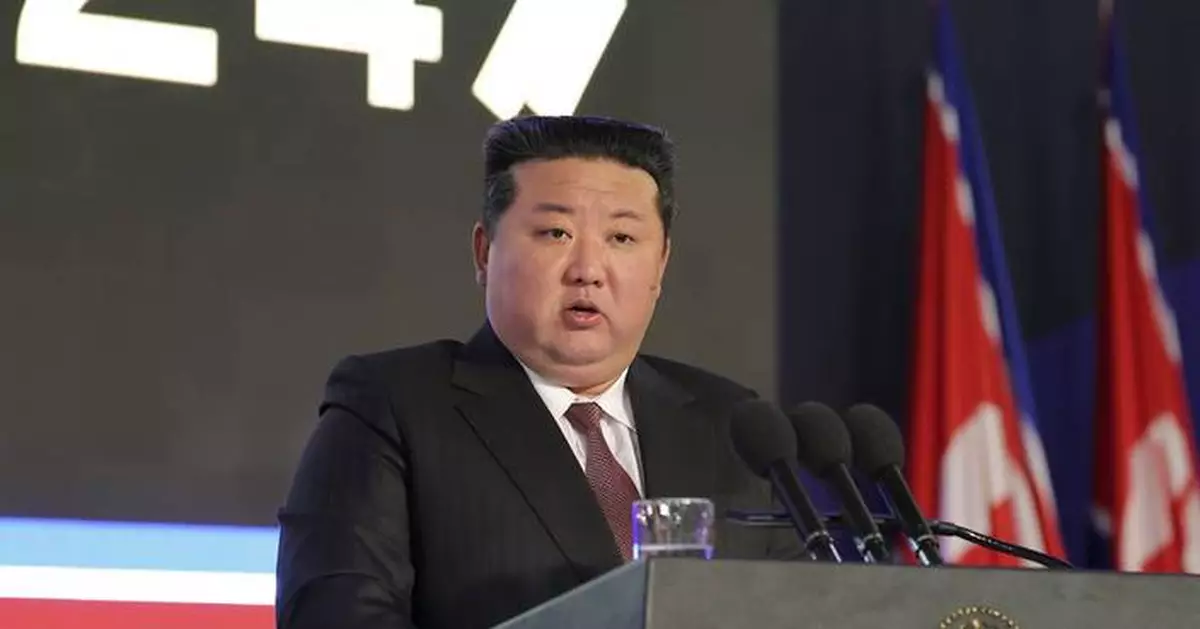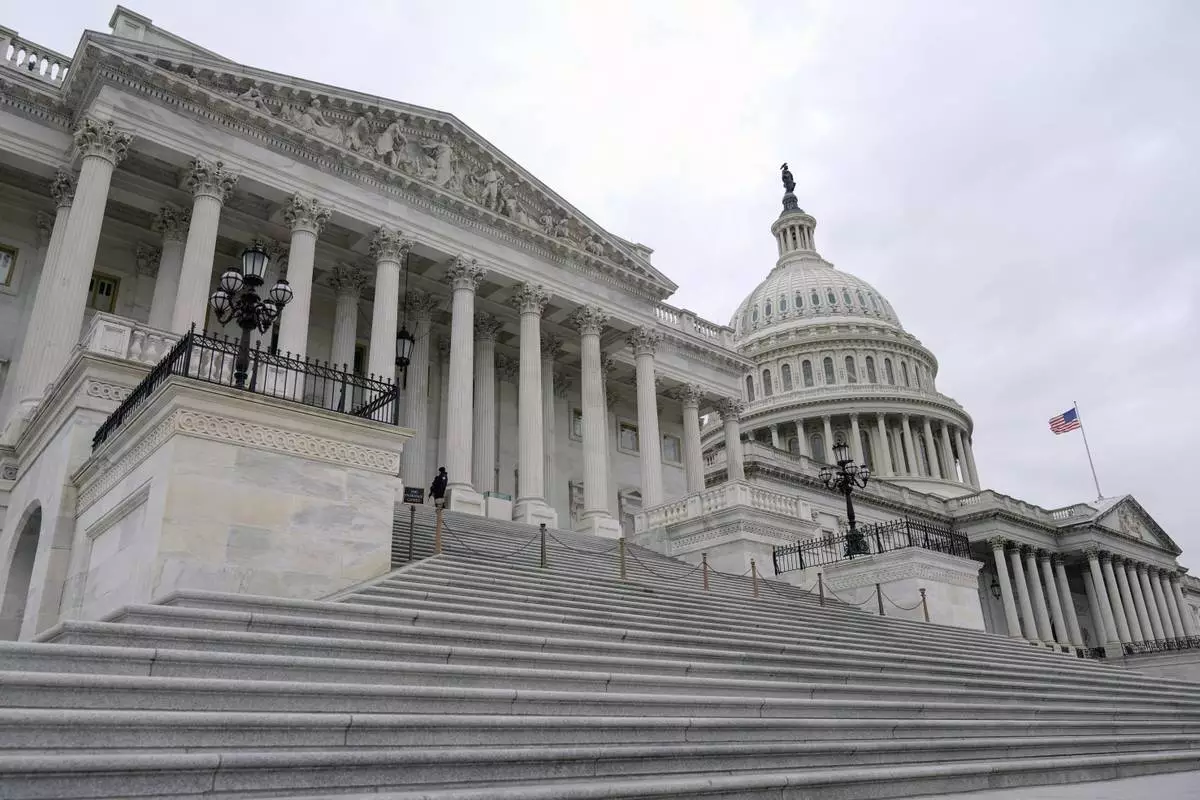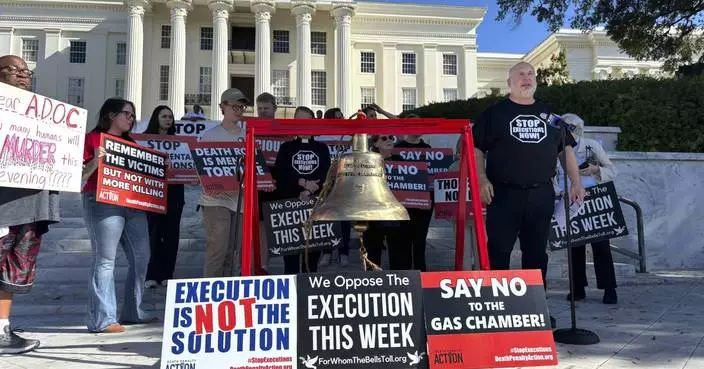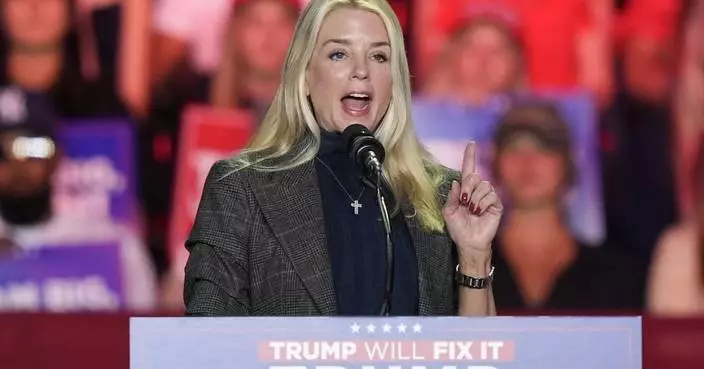SEOUL, South Korea (AP) — North Korean leader Kim Jong Un said his past negotiations with the United States only confirmed Washington’s “unchangeable” hostility toward his country and described his nuclear buildup as the only way to counter external threats, state media said Friday.
Kim spoke Thursday at a defense exhibition where North Korea displayed some of its most powerful weapons, including intercontinental ballistic missiles designed to target the U.S. mainland as well as artillery systems and drones, according to text and photos published by the North’s Korean Central News Agency. While meeting with army officers last week, he had pledged a “limitless” expansion of his military nuclear program.
Kim has yet to comment directly on Donald Trump's reelection as U.S. president. During his first term, Trump held three highly orchestrated summits with the North Korean leader in 2018 and 2019, before the diplomacy collapsed over disagreements on exchanging a relaxation of U.S.-led economic sanctions with North Korean steps to wind down its nuclear program.
During the speech at the exhibition, Kim touched on the failed summits without naming Trump.
“We have already gone as far as possible with the United States with negotiations, and what we ended up confirming was not a superpower’s will for coexistence, but a thorough position based on force and an unchangeable invasive and hostile policy” toward North Korea, Kim said.
Kim accused the United States of raising military pressure on North Korea by strengthening military cooperation with regional allies and increasing the deployment of “strategic strike means,” apparently a reference to major U.S. assets such as long-range bombers, submarines and aircraft carriers. He called for accelerated efforts to advance the capabilities of his nuclear-armed military, saying the country’s only guarantee of security is to build up the “strongest defense power that can overwhelm the enemy.”
Kim's expanding nuclear weapons and missile programs include various weapons targeting South Korea and Japan and longer-range missiles that have demonstrated the range to reach the U.S. mainland. Analysts say Kim’s nuclear push is aimed at eventually pressuring Washington into accepting North Korea as a nuclear power and to negotiate economic and security concessions from a position of strength.
In recent months, the focus of Kim’s foreign policy has been Russia as he tries to strengthen his international footing, embracing the idea of a “new Cold War” and aligning with President Vladimir Putin’s broader conflicts with the West.
Washington and its allies have accused North Korea of providing Russia with thousands of troops and large amounts of military equipment, including artillery systems and missiles, to help sustain its fighting in Ukraine. Kim in return could possibly receive badly needed economic aid and Russian technology transfers that would possibly enhance the threat posed by his nuclear-armed military, according to outside officials and experts.
North Korea also held a major arms exhibition in July last year and invited a Russian delegation led by then-Defense Minister Sergei Shoigu, who was given a personal tour by Kim that included a briefing on the North's expanding military capabilities, in what outside critics likened to a sales pitch. That event came weeks before Kim traveled to the Russia for a summit with Putin, which sped up military cooperation between the countries. North Korean state media photos of this year's exhibition showed various artillery systems, including what appeared to be 240mm multiple rocket launch systems that South Korea's spy agency believes were part of the North Korean weaponry recently sent to Russia. When asked whether North Korea was showcasing the systems it intends to export to Russia, Koo Byoungsam, a spokesperson for South Korea’s Unification Ministry, said he wouldn't make “premature judgments” but said the government was “monitoring related trends." “We stress once again that arms transfers between Russia and North Korea are a clear violation of U.N. Security Council resolutions and an illegal act that undermines the norms of the international community,” he said.
Even with Trump returning to the White House, a quick resumption of diplomacy with North Korea could be unlikely, according to some experts. North Korea's deepening alliance with Russia and the weakening enforcement of sanctions against it are presenting further challenges in the push to resolve the nuclear standoff with Kim, who also has a greater perception of his bargaining power following the rapid expansion of his arsenal in recent years.
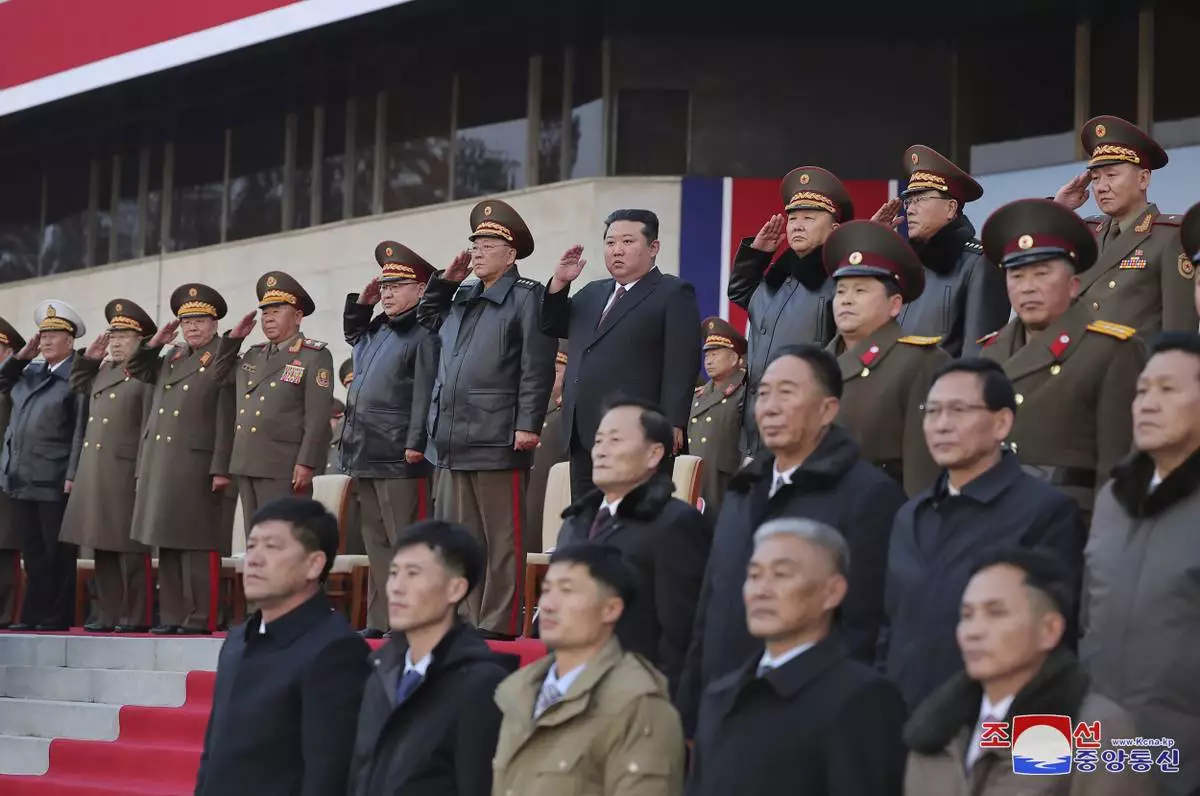
In this photo provided by the North Korean government, North Korean leader Kim Jong Un, center right, attends an opening ceremony of a defense exhibition in Pyongyang, North Korea Thursday, Nov. 21, 2024. Independent journalists were not given access to cover the event depicted in this image distributed by the North Korean government. The content of this image is as provided and cannot be independently verified. Korean language watermark on image as provided by source reads: "KCNA" which is the abbreviation for Korean Central News Agency. (Korean Central News Agency/Korea News Service via AP)
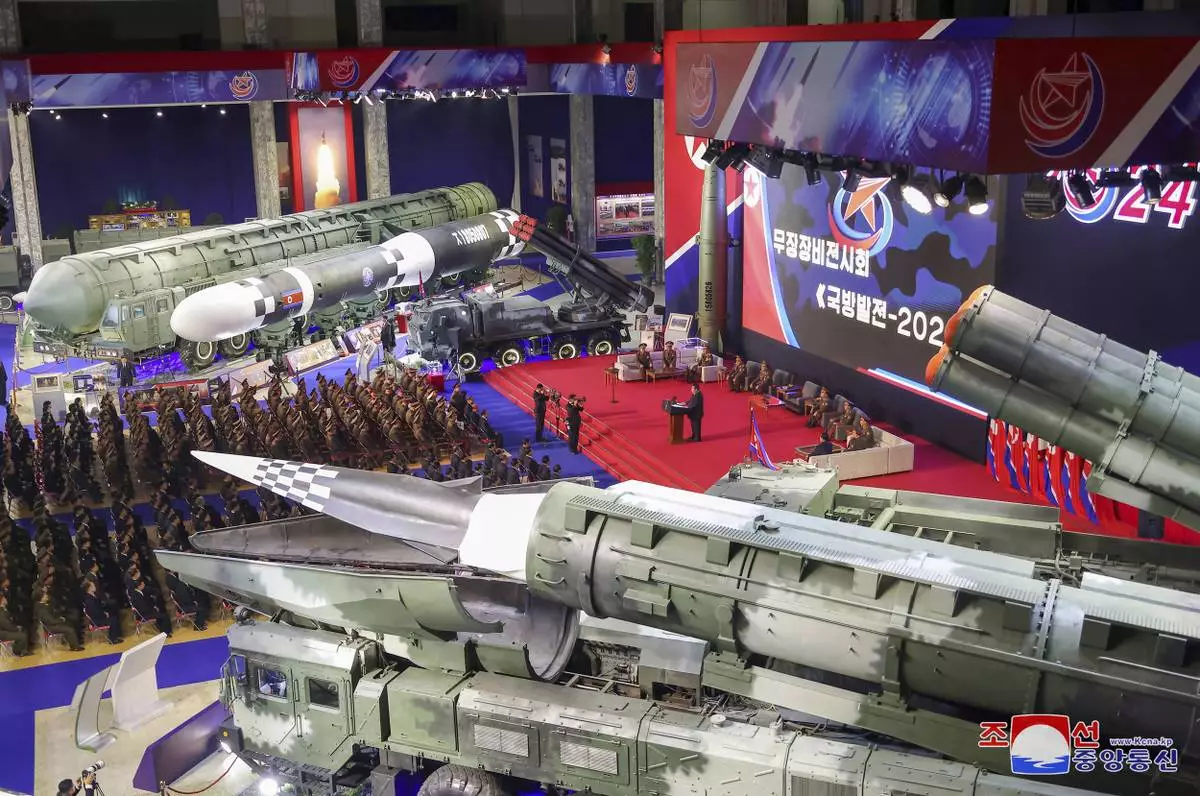
In this photo provided by the North Korean government, an opening ceremony of a defense exhibition is held in Pyongyang, North Korea Thursday, Nov. 21, 2024. Independent journalists were not given access to cover the event depicted in this image distributed by the North Korean government. The content of this image is as provided and cannot be independently verified. Korean language watermark on image as provided by source reads: "KCNA" which is the abbreviation for Korean Central News Agency. (Korean Central News Agency/Korea News Service via AP)
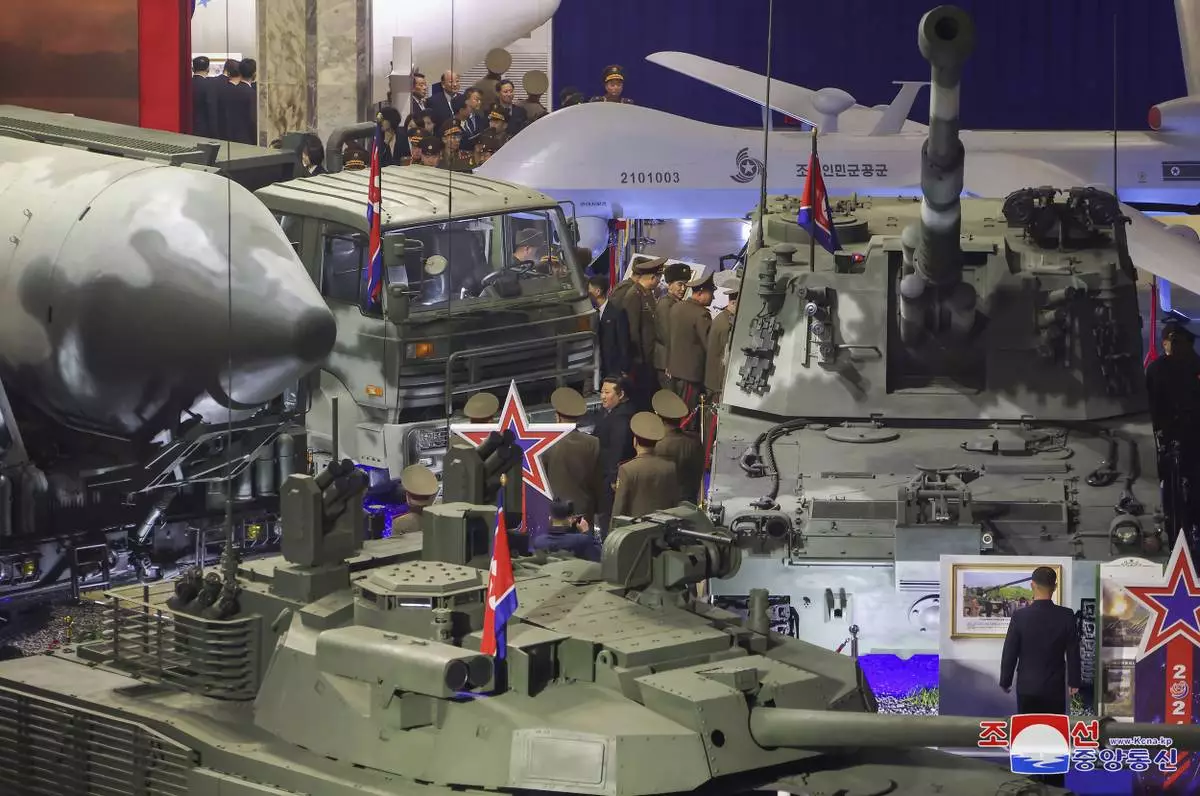
In this photo provided by the North Korean government, North Korean leader Kim Jong Un, center, looks around at a defense exhibition in Pyongyang, North Korea Thursday, Nov. 21, 2024. Independent journalists were not given access to cover the event depicted in this image distributed by the North Korean government. The content of this image is as provided and cannot be independently verified. Korean language watermark on image as provided by source reads: "KCNA" which is the abbreviation for Korean Central News Agency. (Korean Central News Agency/Korea News Service via AP)
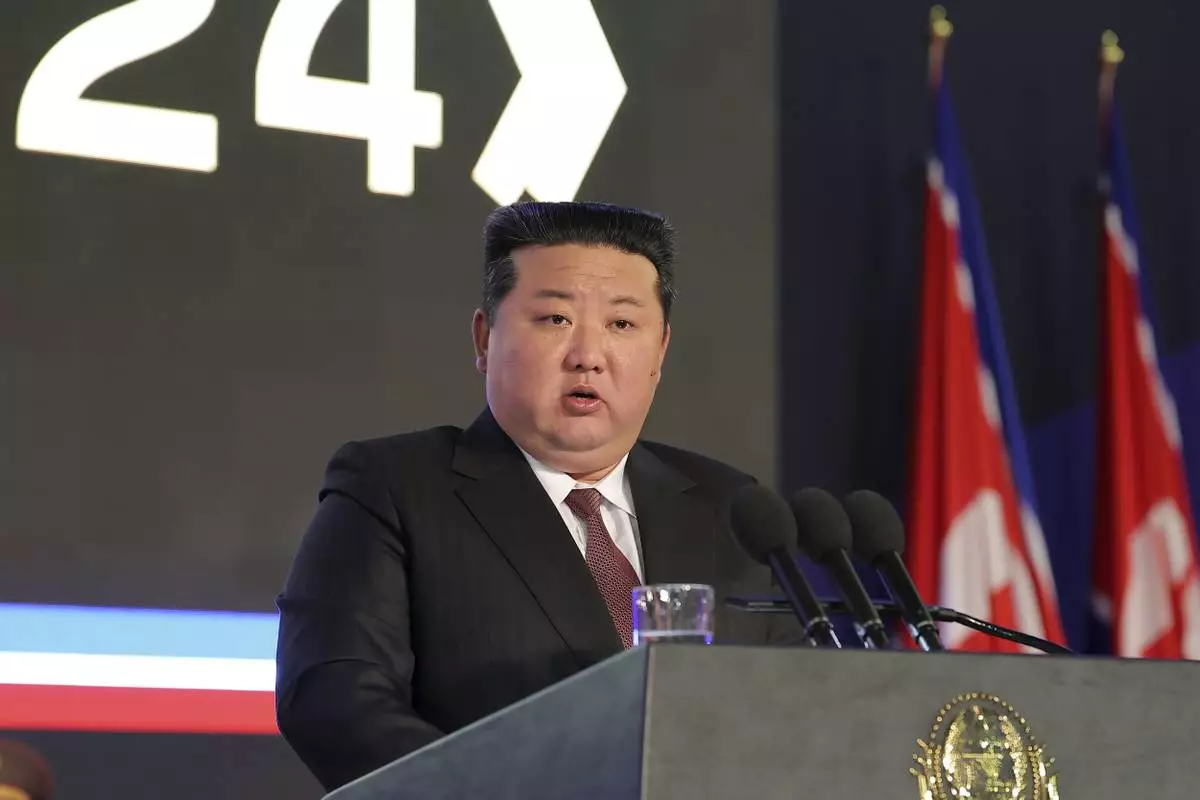
In this photo provided by the North Korean government, North Korean leader Kim Jong Un delivers a speech during an opening ceremony of a defense exhibition in Pyongyang, North Korea Thursday, Nov. 21, 2024. Independent journalists were not given access to cover the event depicted in this image distributed by the North Korean government. The content of this image is as provided and cannot be independently verified. (Korean Central News Agency/Korea News Service via AP)


